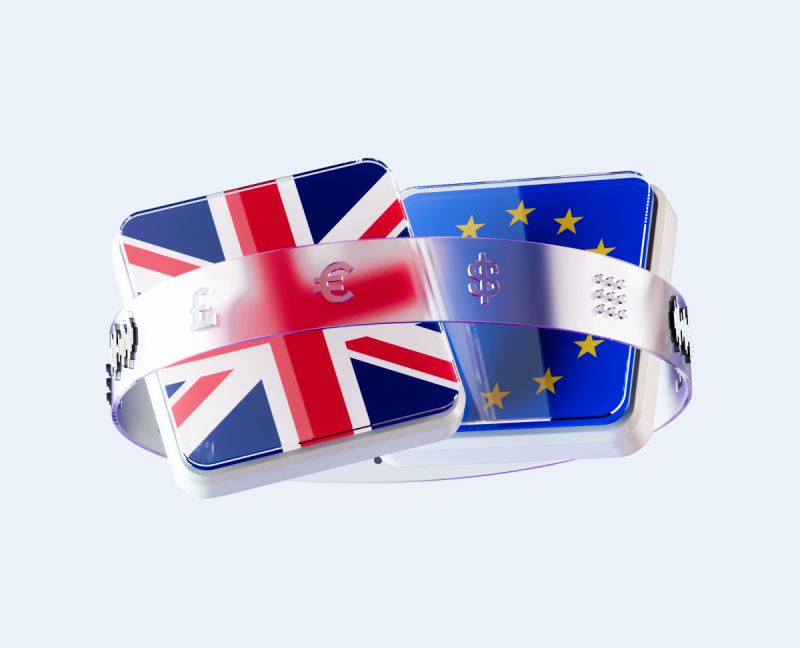
International payments are notoriously expensive.
There, we said it. Paying an international invoice can be a real headache for many SMEs and businesses just starting out with overseas suppliers or partners – and there often doesn’t seem to be a way around it.
Exchange rates fluctuate on a daily basis, and high street banks can charge exorbitant fees for their FX services. Not to mention the unnecessarily complex rounds of paperwork required if you’re importing or exporting goods across the EU.
But the truth is, importing and exporting can be massive contributors to a business’ growth strategy, and vital for most scaling companies’ operations. The EU is in a prime position to supply or sell, so losing out on the market shouldn’t be an option for SMEs, simply because of inconvenience.
So there must be an easier way of reaping the rewards without the legwork and cost, right?
Let’s review what you need to know to make international payments for imports and exports that are a bit simpler.
Regardless of whether you’re submitting the payment for a good, or requesting a payment, you’ll need to know what billing information is required when making an international payment.
As a rule of thumb, anyone making a payment overseas will need the IBAN (International Bank Account Number) of the business or sole trader they’re paying. They’ll also need that individual’s BIC (Bank Identifier Code) and the precise details of all information, such as whether it’s a registered business account or personal account.
Next, you’ll need to understand whether your goods (importing or exporting) will be eligible for other costs and paperwork. There’s a number of regulations when it comes to trading in the EU, so it’s important to come to terms with these, including:
It may sound complex – and a little daunting to look at! – but the good news is that the more frequently you import/export, the simpler the process becomes.
When we think about costs associated with international payments, we often think about exchange rate fees, maybe admin costs of paperwork. But there are a few more pound signs in between the lines than just paying or being paid by a supplier.
Depending on which side of the transaction you’re on, it’s likely you’ll need to consider the cost of duties and tax, not to mention customs tariffs. If you’re importing goods, it could be your supplier or partner’s responsibility to manage this side of the transaction, and the fees may be built into your final invoice.
On the other hand, if you’re the exporter, this will likely land in your corner. Having said all of this, many supplier-customer relationships now take a partnership approach, and baking in admin and fee ownership in your contract will provide you with much-needed clarity.
If you’re looking to make payments overseas, Moneff can help. With global coverage, comprehensive payment networks, and a team on-hand to support you every step of the way, we can make paying your suppliers in the EU, UK (or beyond).